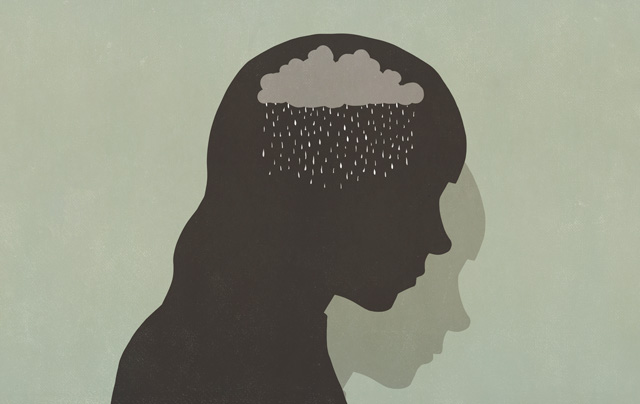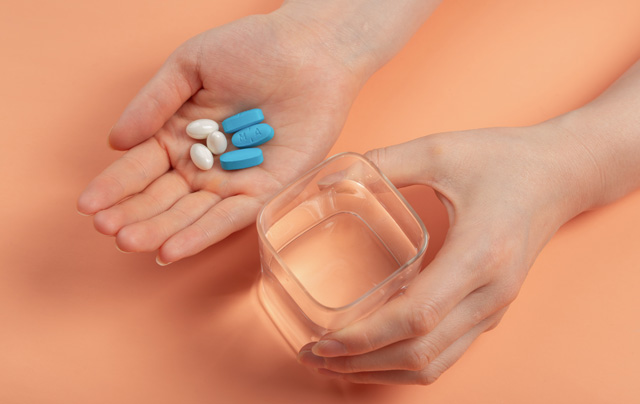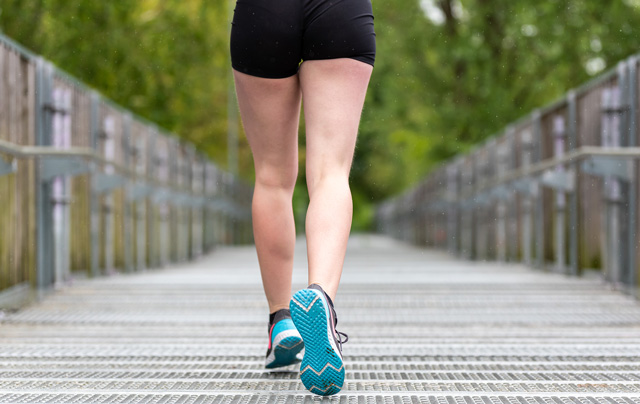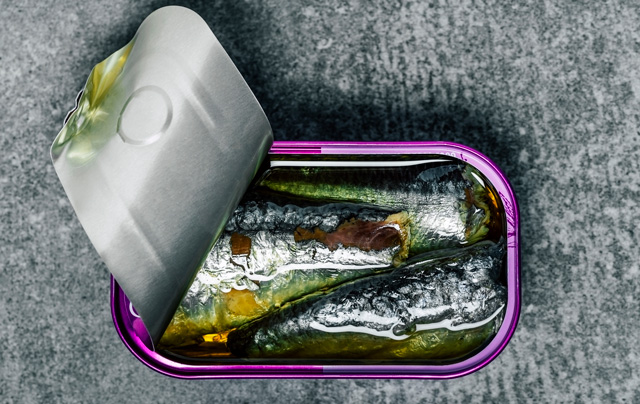How to increase fertility: 40 ways to boost your chances of getting pregnant
Are you trying to get pregnant? Here's how to increase fertility and boost your chances of getting pregnant.

Joanne Lewsley

Knowing how to increase your fertility can really make a difference if you've been trying to get pregnant for a while.
From eating foods that can boost fertility and trying fertility yoga to pinpointing your fertility window with our ovulation calculator - our guide has it all. If you're wondering how to increase your chances of getting pregnant, we've got advice and tips from fertility experts and nutritionists to help you get your mind and body in the best shape for conception.
Editor's note
Most of these fertility-boosting tips have been written for women, but some, such as improving your lifestyle and diet, can apply to men too. We've also included an extra section on how to boost fertility in men further down.
We've also got advice on increasing sperm count and to help you add a little fun, we've got tips on the best sex positions for conception. Fertility refers to the natural ability of an individual or a couple to conceive a child, and it can be affected by age, lifestyle, and genetics.
If you're older, or if you want to find out how to improve your fertility naturally, these fertility boosters can be helpful. If you're still having problems conceiving after making changes, talk to your GP about other options.
How to increase fertility: 40 ways to boost your chances of conceiving
1. Come off contraception
According to Tommy's, if you are on the Pill, you should finish the packet you are on and then wait for at least one month before you try to conceive. You can use condoms until then. If you are on the mini-pill, you don't need to finish the packet, but you should still wait to have a period. However, don't worry if you do get pregnant sooner as it's unlikely to harm your baby.
'Come off the Pill once you're ready to start a family,' says Dr Irfana Koita, a fertility consultant and director of IVF Matters. 'You should ovulate spontaneously and have regular cycles right away. If not, make sure you see a fertility specialist and get assessed,' she advises.
If you use a contraceptive injection, your periods might take a little longer to return. Progesterone implants and intrauterine devices (known as the coil) need to be removed by a doctor but your fertility levels should quickly return to normal. As above, doctors advise waiting at least one month to have a period before trying for a baby.
Parenting advice, hot topics, best buys and family finance tips delivered straight to your inbox.
2. Know when you ovulate
Many women have no idea what their normal menstrual cycle is, especially after years of regulated periods on the Pill. Contrary to popular belief that women have a 28-day cycle, some have a short one (25 days) and others a longer one (35 days). The fertility cycle starts on the first day of your period but ovulation doesn't necessarily start mid-cycle.
If you do have a regular 28-day cycle then ovulation occurs around day 14, but if you have a 25-day cycle ovulation occurs around day 11 and if you have a 35-day cycle then ovulation occurs around day 21. For women whose cycles aren't regular, an ovulation date calculator can come in very handy.
Do women need to keep a menstrual diary? 'If you're seeing a period every month (between 25 and 35 days) you don't need to maintain a menstrual diary,' says Dr Koita. 'If your cycles are regular it's an indication that you're ovulating every month.' To keep an eye on your periods try using an app such as the Hormone Horoscope app (available at Apple and Google Play). If you're wondering how to boost ovulation naturally, read on.
3. Book a reflexology session
Stress and anxiety can affect fertility so if you're looking at how to increase fertility consider relaxation techniques, such as reflexology. Reflexology is based on the idea that specific areas on your hands and feet link to different organs in your body. Putting pressure on those points may stimulate the energy flow to those organs.
'One way to relax is to book a regular slot for a massage or a reflexology session,' says women's health expert Natasha Richardson. 'Relaxation helps us balance our hormones and ovulate regularly; it's a major factor in fertility for both men and women.'
4. Use a basal thermometer
A basal thermometer is one way to track your most fertile days. Your basal body temperature is a measure of your regular temperature upon waking, which rises as a result of the hormonal changes during ovulation.
With a basal thermometer such as the Beurer Ovulation Thermometer (£14.99, Holland & Barrett) you can track the smallest basal temperature changes in your body, allowing you to know when you're ovulating and are therefore most fertile. While these sensitive thermometers are inexpensive, easy to use, and a form of natural family planning, they're not always the best ovulation predictor if you have irregular periods. Many women now find ovulation tests easier and more precise.
5. Use ovulation tests
Ovulation tests record surges in your hormone levels which indicate that you're ovulating. You can opt for a well-known brand such as Clearblue (£14.99, Amazon), or buy an own-brand version from pharmacies such as Boots.
'These are a good screening tool to reassure you that you're ovulating every month,' says Dr Koita. 'Use these for a couple of months. Once they confirm ovulation stop using them as they can make the process of trying to conceive very stressful,' she advises.
A test may also highlight potential problems with ovulation. Fertility expert Dr Arpita Ray from assisted conception clinic Bourn Hall estimates that about a third of women struggling with infertility have a hormone imbalance. This can impact ovaries and prevent the release of one mature egg each month, reducing the chances of becoming pregnant.

6. Deal with stress
Stress affects everyone differently so it's good to know the signs and symptoms of stress. Stress can put you off having sex, which makes it difficult for you to conceive, as well as 'cause unexplained infertility,' says Natasha.
Chronic stress can cause long-term exposure to flight-or-fight hormones, such as adrenaline and cortisol, which are bad for general health. 'When stressed, we produce a hormone called prolactin – the same hormone produced by breastfeeding women to inhibit ovulation, so it will make conception more difficult,' explains Dr Gillian Lockwood, medical director at fertility clinic CARE Fertility Tamworth.
Take some time for yourself and focus on winding down at the end of every day. Give yourself half an hour each evening to relax your body and mind – have a warm bath, read a book, and try breathing exercises to calm your mind. Relaxation exercises such as yoga may help you conceive.
'It’s important to try to de-stress when trying to conceive,' says Professor Geeta Nargund, medical director of CREATE Fertility 'Although easier said than done, a healthy mind promotes a healthy body, so try to reduce your stress wherever possible,' she advises.
7. Keep your vagina chemical-free
Avoid scented tampons and vaginal sprays as they can cause a pH imbalance in your vagina. Artificial lubricants, arousal oils and douches should also be avoided as these alter the normal acidity of the vagina, can cause pelvic inflammatory disease, and can affect the cervical mucus that transports the sperm.
'The pH of the vagina changes naturally during each cycle from inhospitable to hospitable for sperm, so it's important to just leave it be. Vaginal douching and washes can disturb this unnecessarily,' explains Natasha.
If you suspect you have a pH imbalance you can buy simple kits online or at high street pharmacies such as Boots (£8.99). These involve holding an applicator against the wall of the vagina and comparing the result with a colour-coded table.
8. Lie down after sex
Rather than heading to the bathroom after you've had sex, take time to relax your body for a minute whilst the sperm is still inside you.
While some regard it as a folk legend, others think that lying down for a few minutes, or putting your legs up, can help the sperm on their journey towards the egg.
The FERTI·LILY Conception Cup (Boots, £32.99) works on this principle and has had rave reviews from customers who believe it's worked. Insert this reusable soft silicone cup into your vagina after sex to push the semen towards your cervix (the opening to your womb) and 'increase the amount of sperm that enters the cervical mucus.'
9. Give up alcohol
While a very occasional tipple is unlikely to affect your chances of getting pregnant, it could harm your unborn baby if you get pregnant and continue drinking. That's why medical experts in the UK advise giving up alcohol completely while trying for a baby, and during pregnancy.
'A study co-authored by the Boston University School of Public Health found that moderate alcohol consumption does not affect a woman’s ability to get pregnant. Women who drank fewer than 14 servings of a 4 ounce glass of wine were no less likely to conceive than those who abstained completely,' explains nutrition expert Hayley Pedrick, founder of Habitude.
'However, heavier drinking – the equivalent of two bottles of wine or more a week – was associated with an 18% decrease in fertility,' she says. 'Researchers still recommend that women abstain from alcohol during their “fertile window” until a pregnancy is ruled out, because the foetus may be particularly vulnerable to alcohol during the first few weeks of conception.'
Alcohol intake also affects fertility in men. In the NHS article 'How can I improve my chances of becoming a dad?' it states, "Drinking alcohol excessively can affect the quality of sperm. The UK Chief Medical Officers' recommendation is to drink no more than 14 units of alcohol a week, which should be spread evenly over 3 days or more." So ask your partner to cut back or go teetotal.
Track your drinking with charity Drinkaware's alcohol calculator and find out more about alcohol's impact on fertility.
10. Get a medical check-up
It's sensible to book an appointment with your doctor to have a check-up before you decide to try for a baby. 'General health can be linked to fertility health so do speak to your doctor if you have any general health conditions,' says Professor Nargund. They can rule out any major factors affecting fertility. For example, according to the charity Verity, 1 in 10 women in the UK have Polycystic Ovary Syndrome (PCOS), which is one of the leading causes of infertility, especially if it is undiagnosed and unmanaged.
You should also be screened for sexually transmitted diseases, which often show no symptoms.
'In the preconception period I also recommend all women have their Rubella immunity checked,' adds Dr Koita. Catching Rubella during pregnancy can harm the foetus.

11. Start a supplement programme
Although a healthy diet is the best way to gain nutrients, a basic vitamin supplement programme – particularly one that contains folic acid (B9) and vitamin D – can help ensure you get what you need.
'Supplements should be a vital component of a woman’s conception plan; they complement a healthy, balanced diet,' says Kate Davies, an independent fertility nurse consultant and director of Your Fertility Journey. 'I recommend the BetterYou Conception Oral Spray (£14.95, Boots) to all my patients as it includes essential folic acid, vitamin D and other important vitamins and minerals for optimising good fertility.'
NHS advice is to take a 400 microgram supplement of folic acid every day if you’re trying for a baby and every day after you're pregnant, up until your 12th week of pregnancy. Folic acid is essential for healthy red blood cells and to reduce your baby's risk of having a neural tube defect. You'll need to take it until 12 weeks of pregnancy.
See No. 23 for what you need to know about Vitamin D.
12. Check your BMI
Check you're a healthy weight before trying to conceive. 'It’s important to make sure you are at a healthy weight,' says Professor Nargund. 'Being over or underweight can affect your fertility.' For example, underweight women sometimes find their periods stop so they may have difficulty conceiving.
‘A healthy Body Mass Index (BMI) of between 18 and 25 increases the chances of pregnancy,’ says fertility expert Dr. Ray.
Dr Kotrotsou, Consultant in Gynaecology and Reproductive Medicine, agrees, 'Doctors often struggle to have frank discussions with patients about the impact of weight on the chances of pregnancy. In reality, being outside of a healthy BMI can cause hormonal imbalances that interfere with female cycles, normal development of eggs, and implantation of embryos,' she says.
'Our fertility predictor has found that losing just 6 or 7 kilos to reach a BMI that’s in the healthy range can increase the chance of pregnancy by more than half, which is very significant.'
13. Stock up on Vitamin E
'Vitamin E is a powerful antioxidant. Research shows it can be used to reduce age-related ovarian decline. And in men it plays a role in combating free radicals which may otherwise reduce sperm count,' says Hayley.
'It's believed to be important to supplement with 160mg daily, using a natural rather than synthetic vitamin E. The reason for this is that a study, published in the American Journal of Clinical Nutrition, found that the absorption rate of the natural version is more efficient than the synthetic. Almonds, hazelnuts, sunflower seeds, beef, corn and eggs (yolk) are all good food sources of this nutrient,' she adds.
14. Eat a healthy, varied diet
Diet plays a major part in helping you conceive. Healthy eating throughout pregnancy will help you give birth to a healthy baby, too.
'The Murdoch Children's Research Institute identified the first 1,000 days of life as a critical period of developmental plasticity,' says Hayley. 'During this time the child is most influenced by nutritional choices, environmental exposures and stress. The microbiome is also a key influencer of health and disease outcomes,' she explains.
'However, we never know at the start of a fertility journey how long it is going to take to fall pregnant and keeping to a very strict healthy eating regime can be very difficult,' continues Hayley. 'We, therefore, aim for balance and work towards eating healthy 80% of the time and allowing space for enjoyment and a bit of what you fancy 20% of the time. This keeps up morale and doesn’t detract from enjoyment of food, eating out, and celebratory occasions while trying to conceive,' she explains.
‘Diet absolutely has an impact on fertility,’ adds Dr Kotrotsou. ‘It’s important to maintain a healthy diet that includes all food groups (carbohydrates, protein, fats), and contains the right amount of nutrients. Your fertility diet should also include more low GI (glycemic index) carbs such as porridge, lentils and beans, rather than high GI carbs, such as sugary and processed foods, because low GI carbs are digested more slowly. And you should choose unsaturated fats over saturated fats, and have plenty of sources of omega-3 fatty acids (found in fish and flaxseed).’
15. Stop smoking
Smoking impacts on fertility – in both men and women. Toxins in tobacco smoke can harm both eggs and sperm, including damaging DNA and reducing your chance of pregnancy. And it actively affects the success rate of fertility treatments such as IVF.
'If you're a smoker, give up as soon as possible if you are looking to conceive. Research shows smoking can be linked to early menopause in women and damaged sperm in men, so try and stop to help protect your fertility,' says Professor Nargund.
Giving up smoking can multiply your chances of pregnancy by almost half, according to research by Apricity. For help quitting find your nearest NHS Stop Smoking Service, or call the National Smokefree Helpline on 0300 123 1044.

16. Move your body more
'Regular exercise and maintaining a healthy lifestyle and diet are not only important for your overall health, but have also been found to help increase your chances of conception,' says Professor Nargund.
Fertility yoga and other exercises can help boost the 'happy hormones' endorphins, reduce stress, help us lose excess weight, increase heart function and lower cholesterol. Try to get the recommended minimum of 30 minutes exercise a day which leaves you slightly breathless, five days a week.
One study found that four hours of vigorous exercise a week could boost your chances of getting pregnant. Postnatal exercise is also important to your wellbeing and to help you get back to a healthy weight after you've had a baby.
17. Boost your B12 intake
Almost 50% of us have unhealthy levels of vitamin B12 according to research by health tracking service Thriva, even though we need it for cellular reproduction and men need it for a healthy sperm count. ‘Vitamin B12 is a nutrient that helps keep the body’s nerve and blood cells healthy and makes DNA, the genetic material in all cells,’ says nutritionist Rob Hobson.
'Studies have linked vitamin B12 deficiency to suboptimal fertility by causing changes in ovulation, development of the egg or changes leading to defective implantation which heightens the risk of miscarriage,' says Hayley. 'Chances of successful conception significantly increase once the deficiency has been corrected,' she adds.
The NHS supports this, saying 'Vitamin B12 deficiency can sometimes lead to temporary infertility, an inability to conceive. This usually improves with appropriate vitamin B12 treatment.'
The best sources of B12 include beef liver and clams, but it’s also found in fish, meat, poultry, eggs, milk and dairy products. Consider a supplement if you’re vegan or vegetarian because vitamin B12 is only found naturally in animal foods. ‘Plant foods have no vitamin B12,’ says Rob. ‘Although some breakfast cereals, nutritional yeasts and other food products are fortified with vitamin B12.’
18. Don't forget zinc
Zinc is an essential nutrient. It ensures the production of good quality sperm and can reduce the chance of miscarriage, so it's integral to both male and female fertility.
'Zinc is required for every enzymatic process that occurs in the body,' says Hayley. 'This makes it a high-demand nutrient and one that is quite easy to become deficient in if you’re not conscious about including foods that contain it in your diet on a regular basis. Numerous studies have shown zinc to be vital to male fertility, as it influences the sperm motility, improving its ability to reach and fertilise the egg. It also supports healthy testosterone levels in men,' she explains.
'A new study shows that a zinc deficiency can also negatively affect the early stages of development, reducing the ability of the egg cells to divide and be fertilised,' continues Hayley.
The daily requirement for zinc is 30mg and it can be sourced through food. 'Most people think of oysters as good sources of zinc. Love them or loathe them they're hardly a staple on anyone's meal plan!' says Hayley. 'More accessible sources for day-to-day zinc support include beef, lamb, peppers, sunflower and pumpkin seeds, wholegrains and seafood.
Don’t forget legumes, such as beans, peas and lentils.' They’re high in mineral levels, especially zinc,’ says nutritionist Elizabeth Stewart from vitamin supplement subscription service Vitl. ‘Legumes such as chickpeas and lentils are easy additions to warming soups and stews, increasing the nutrient value of any dish.’
19. Hydrate!
Although drinking more water won't make you more fertile, it will boost your overall health. The benefits of drinking water include reducing dehydration. Being dehydrated can affect the consistency of your cervical mucus, which is what helps the sperm get to the egg. But that's just one small benefit of staying hydrated. Water helps to flush out your system and wakes you up, which means you're less likely to crave a caffeine fix.
Aim for eight glasses of filtered water or herbal or fruit tea per day – more if it's a hot day – to keep you well hydrated and your body in good physical condition.
20. Switch from white to brown
Switch white refined foods to brown wholefoods if possible. That means swapping white options for brown rice, wholemeal bread and wholewheat pasta.
'Our blood sugar balance has a regulatory effect on our sex hormone balance. Choosing brown, wholemeal versions which slowly and steady release glucose into the blood stream, will be more beneficial to supporting hormone balance than white refined foods,' says Hayley.
'Wholemeal grains also have a higher nutrient density than refined grains but we need to prepare them properly in order to access the benefits,' says Hayley. 'Rolled oats, for example, should be soaked overnight to draw out the phytates which otherwise keep important minerals "locked away." The water containing the phytates should be drained away the following morning before consuming them.'
21. Spoon on the honey
Honey has been regarded as a natural fertility booster for generations, so much so that the word "honeymoon" is thought to have come from the age-old tradition of newlyweds eating a spoonful of honey each night in order to speed up the baby-making process.
'Honey is a highly nutrient-dense food with promising antioxidant, anti-inflammatory and antibacterial properties. It has a long traditional history of use as a fertility enhancer. It's thought to improve egg quality and general fertility because of its rich B vitamin, iron, calcium, and amino acid content,' explains Hayley. '
'And 100g of honey has also been shown to increase nitric oxide levels in the blood by up to 50%,' she adds. 'This chemical substance improves vasodilation and can therefore improve erection in men suffering with erectile dysfunction. Locally sourced, high quality honey is recommended to access the full immune and fortifying benefits. However, it's best to avoid this remedy if you're struggling with a metabolic disorder, such as type 2 diabetes.'
22. Enjoy good fats
Fat is fine if it's good fat. Fat is an essential part of a healthy, balanced diet. It helps the body absorb certain fat-soluable vitamins, such as A, D and E, which are important for boosting fertility.
'There's a strong focus on including healthy fats to support fertility,' says Hayley. 'Omega-3 fatty acids play an important role in regulating hormone balance, modulating inflammation and improving the conditioning of the uterine lining to support implantation and a healthy pregnancy. Oily fish are considered to be the most bioavailable source of omega-3. These include sardines, mackerel, anchovies, trout, salmon and herring. Good plant sources include avocados flaxseeds, walnuts and chia seeds,' she says. See our selection of easy salmon recipes for inspiration.
Cut down on bad fats, which are found in red meat, dairy foods, biscuits and pastries. Eating too much of these can raise cholesterol levels in your blood, increasing your risk of heart disease and stroke.
23. Get some vitamin D
Experts say that getting vitamin D from the sun can boost your female sex hormone levels and help regulate your menstrual cycle, making conception more likely. In men, it can improve sperm count since vitamin D helps with nucleus development, plus sunshine can raise a man's libido and testosterone levels.
'Sunshine boosts vitamin D as well as our endorphins and serotonin, so it's good all round (in safe quantities of course),' says Natasha. 'It only takes a small amount of exposure to sun each day to get what you need, plus studies have shown that women with higher levels of vitamin D in their follicular fluid are more likely to have successful IVF treatment,' she adds.
GP Dr Gill Jenkins says, ‘Between March to October, half an hour a day with direct midday sunlight, no sunscreen, on your face and arms or legs, should be enough to convert vitamin D3 to active vitamin D, which is absorbed into the bloodstream. In the winter none of us get enough direct sunlight and it’s advisable to take a supplement.’
'There are certain foods which can support vitamin D production,' adds Hayley. 'These include eggs (yolks) milk, butter and sprouted seeds.' Although fish liver oils (e.g. cod liver oil) are a good source of vitamin D they are not recommended during pregnancy.'
24. Consume B6-rich foods
'Research has found that eating foods rich in vitamin B6 (also known as pyridoxine) can double your chances of becoming pregnant,' says Hayley. 'It's important for regulating sex hormones, particularly progesterone. Progesterone is known as the pregnancy hormone because it helps the fertilised egg implant, establish and maintain itself in the uterine lining for a healthy pregnancy,' she explains.
'Good dietary of sources B6 include avocados, bananas, carrots, eggs (yolks), lentils, mackerel, peanuts, salmon, tuna, sunflower seeds and walnuts,' she says.

25. Take selenium (men and women)
Having enough selenium is very important. 'Selenium deficiency in women has been linked to an increased risk of miscarriage,' says Hayley.
Selenium is also good for males as it's an antioxidant that has been shown to increase male fertility. 'Good levels are also essential to maintain healthy testosterone levels and for the production of sperm in men,' adds Hayley. 'It is particularly important in the creation of strong whiplash tails in the sperm. One study found selenium supplementation to increase fertility from 17.5 to 35.1% in sub-fertile men,' she says.
'It's recommended that both men and women supplement with 100ug selenium a day,' she advises. 'Further dietary support can be obtained through herring, tuna, garlic, eggs, carrots, mushrooms and broccoli.' You can also find selenium in Brazil nuts and lobster.
26. Reach your RDA of fibre
It's essential for keeping your bowels regular, so make sure you eat plenty of wholegrains, fruit and vegetables to keep your digestive system functioning properly. The NHS recommends 30g of fibre a day, but 90% of Brits fall short of this figure, according to studies.
However, don't eat fibre to excess, warns Hayley. 'Fibre has many health promoting benefits in the body. However, when it comes to fertility, don't consume too much fibre. This is because one of the effects fibre has is to reduce oestrogen levels in the body. It does so by reducing β-glucuronidase activity, restricting oestrogen reabsorption in the colon. The result may be a lowering of reproductive hormones, which increases chances of anovulatory cycles occurring (cycles when there's an absence of ovulation),' she says.
The solution? 'Swap very high fibre foods such as bran flakes, wholemeal breads and pastas for more gentle fibre foods such as oats, sweet potato, nuts and seeds and green beans, which contain moderate amounts of fibre and are packed with fertility-enhancing nutrients,' advises Hayley.
27. Cut back on caffeine
It was initially believed that caffeine affects fertility, but recent studies have shown that this may not be true, says fertility doctor Dr Kotrotsou. ‘However, the data on this isn’t particularly robust yet, so the general advice would still be to limit caffeine to less than 200mg per day.’
'Some studies show links between miscarriage and those who have five or more caffeinated drinks a day, but nobody knows exactly why!' adds Natasha. To be on the safe side limit your intake and remember thar caffeine isn’t just in coffee – it's also in caffeinated tea, certain fizzy drinks, energy drinks, chocolate and some over-the-counter medicines.’
28. Plan ahead
'There is so much that women can do to optimise their fertility. It’s all about feeling empowered to take back control. I recommend getting to know when you’re fertile, as research shows us that fertility awareness knowledge can significantly reduce your time to pregnancy. In some cases, as much as up to six months!' says Kate.
In order to boost your fertility, you should start to make positive lifestyle changes at least four months before you start trying to conceive. This is how long it takes the body to register change. If you already have a child, 18 months between birth and conception allows your nutrient stores to replenish. Our guide to the best time of year to have a baby is also helpful.

29.Keep things interesting in bed
According to Tommy's, sexual positions that allow for deep penetration are likely to help you conceive more than others, as they allow the sperm to be deposited closer to the cervix.
Bring back the fun by trying one of our sex positions for conception which encourage deep penetration so your man's sperm is better able to reach your egg.
To keep you both excited and engaged try new positions and even places, and have regular sex (more of that, below).
30. Have regular sex
'You should have sex 3-4 times a week irrespective of your cycle day,' advises Dr. Koita. 'The egg lives for only 24 hours after ovulation and sperm live for 48-72 hours. By having intercourse regularly you will ensure that the egg and sperm have the opportunity to meet every month. Importantly, the sperm quality drops when men abstain for more than three days.'
Research suggests that even if you have sex six days prior to ovulation you stand a good chance of conceiving. If you want to have sex only on the day you ovulate, you may miss your chance of pregnancy. Our ovulation guide will tell you what you need to know.
31. Embrace yoga
'Yoga is a fantastic way to prepare your body for pregnancy as it focuses on relaxation techniques and breathing,' says Cheryl MacDonald, founder of YogaBellies.
'In fact, there have been studies in America (Dr Alice Domar, 2002), which revealed that women who practice mind and body techniques achieved pregnancies at a rate almost three times higher than those who didn’t,' says Cheryl. 'This is because yoga benefits the reproductive functions – both in men and women – by improving the overall integration of physiological systems, reducing stress and balancing the neurohormonal profile,' she explains.
'Yoga also lets mothers prepare for the actual birth, by using physical yoga postures, meditation and also yogic breathing techniques,' she adds. 'So, not only is it fantastic when you’re trying to get pregnant but it gets you into the correct mindset for giving birth.'
Try a YogaBellies for Fertility class (there are classes around the country). 'It's perfect for women who are trying to conceive, or those who want to get their body in the best possible condition for conception,' says Cheryl.
32. Treat yourself to a break
Lots of couples get pregnant during a getaway so pack your bags, grab your partner and head off somewhere away from daily stresses such as work and commuting. If we rest and relax we are also more likely to want sex.
'It can become quite overwhelming when you’re trying to conceive so it’s important to reset the balance,' says Kate. 'Taking the opportunity to care for your emotional health as well as your physical health is vital.'
'Holidays also help us easily dissociate from our workload and practice the relaxation we so desperately need more of in our weekly schedule,' says Natasha.
33. Book a thyroid check
If you've been trying to get pregnant with no positive results it's worth checking to see if you have a thyroid problem. A dysfunctional thyroid can wreak havoc on fertility. Yet it can be hard to diagnose as there aren't always symptoms.
'Checking your TSH levels (thyroid hormone) and vitamin D levels are important as they play an important role in one's ability to get pregnant and maintain a pregnancy,' says Dr Koita. Ask your doctor for a thyroid profile.

34. Get a good night's sleep
To improve your chances of getting pregnant you need to keep yourself as healthy and happy as possible and that includes getting enough sleep.
'Sleep is the time our bodies recover and heal,' says Natasha. 'And having a good routine around your bedtime is crucial to a good night's sleep. I recommend closing the curtains and making the space dark for two hours before sleep. Please, no screens in the last hour. I particularly like a cup of chamomile to seal the deal,' she says.
If you become severely fatigued, a lack of sleep can disrupt your periods, so if you are suffering from any sleep problems look at ways to fix them.
35. Use lubricant
Even if you haven't needed it before, you may now. Having lots of sex can make your vagina dry, so invest in lubricant. It's not advisable to use chemical-based lubricants as they can hurt sperm. Instead, use a lubricant such as Pre-Seed Fertility Lubricant (£18.49, Boots).
36. Reconsider your medication
If you're taking any medication (prescription or not), have a chat with your doctor about how these could affect your fertility, or a foetus if you fall pregnant.
'Speak to your GP if you are on any medication – e.g. antiepileptic, antidepressants or antihypertensives. You should be aware of the effects of these drugs on pregnancy and if there are alternatives available,' advises Dr Koita. Steroids, hormone-based hair and skin treatments and cancer treatment, amongst others, can also have an impact. But don't come off medication without profession advice. It could make you ill.
37. Take a fertility MOT
'Taking a fertility MOT is a great way of understanding your own unique fertility potential,' says Professor Nargund. 'For women, the fertility MOT can provide an assessment of your egg reserve, providing an indication on your biological clock and your ovulation status. A 3D internal ultrasound examines the uterus and gives you information on your womb, helping to spot any fibroids or polyps, which can potentially affect implantation,' she says.
'Additionally, advanced Doppler technology can assess the blood flow to your uterus, giving you further information about the quality of eggs and if there are any factors that can affect implantation or potentially cause miscarriage,' she adds.
'For men, a fertility test gives a detailed analysis of semen. It examines the count, morphology and motility of sperm,' continues Professor Nargund. 'Results are instant, and you can then talk to your doctor about the results to decide on the best next steps to take.' Visit CREATE Fertility for more info.
38. Be kind to each other
It's easy to forget each other during the process of getting pregnant. Making a family takes time, energy, a sense of humour and love. If you find yourself just going through the motions and forcing yourselves to schedule sex you may start to miss out on what should be an intimate time. Ironically, this can result in you wanting to less sex.
Every now and again take a break and inject some joy and romance into your relationship. Go on a country walk, treat yourselves to a dinner date, or give each other a seductive massage. Make sure you keep it fun and flirty with lots of talking. Focus on reliving your honeymoon period – not making a baby.
39. Educate yourself
'Fertility and general health are closely intertwined, so alongside educating young people about the importance of maintaining a healthy lifestyle, we also need to empower them with an understanding of how to best look after their fertility,' says Professor Nargund.
'I have long campaigned for fertility education to be provided in schools – by educating young women and men about their fertility from a younger age, we can enable them to be in control and proactive about protecting their natural fertility by making the necessary positive changes to their lifestyle,' she says.
Forewarned is forearmed, so read up on how to increase fertility or reach out for advice.
40. Don’t give up
If you've been trying for a baby for a while with no success don't worry. You're not alone.
'Around 1 in 6 couples in the UK have trouble getting pregnant,' says Dr Koita. 'But with the right help and support you can fast-track your journey to parenthood,' she says. 'Female age is the most significant factor that determines the chances of a successful outcome, so a timely intervention is important. '
Remember, the more stress and pressure you put on yourself, the longer it will take. Stay well, keep positive and good luck!
How to boost fertility in men
There is plenty that men can do to boost their fertility too. Here are some ways in which you can ensure your sperm has the best chance when it comes to conception:
- Cut out bad habits: Quit smoking now to improve the quality of your sperm. Quitting can help you and your partner become pregnant faster.
- Cut down on alcohol: While moderate drinking shouldn't affect your fertility, long-term and heavy alcohol use can decrease testosterone and sperm production, according to fertility experts in the US. Tommy's advises men to stick to 3-4 units a day.
- Check your BMI: Having a high BMI, or being overweight, can affect the quality and quantity of your sperm. Aim for a healthy BMI of between 18 and 25. Maintain a healthy diet and exercise regularly to keep yourself in good shape, not only for conception but for fatherhood. You'll be running around after a toddler before you know it!
- Keep your sperm cool: Good sperm health relies on being a few degrees cooler than your body's standard temperature. Not keeping testicles cool could lead to lower-quality sperm and decreased sperm production. Steer clear of hot baths, saunas and prolonged periods of sitting, and avoid putting a laptop directly on your lap. Loose trousers and underwear can also help lower the temperature of testicles.
Does folic acid boost ovulation?
While there is no evidence that folic acid can directly boost your fertility, there is some research to suggest that there is an association between taking folic acid, and a greater chance of becoming pregnant, according to authors of a Danish study in 2016.
Researchers found that women who took folic acid had increased 'fecundability' which means they had a greater chance of becoming pregnant during a menstrual cycle.
Doctors often recommend folic acid for women who are trying to conceive or are in the early stages of pregnancy, due to its importance in supporting healthy foetal development. Having good overall health, including taking any recommended vitamins and minerals like folic acid, can also indirectly contribute to healthy ovulation.
So if you're wondering how to boost ovulation naturally, taking folic acid could be good place to start, along with improving your diet and overall health.
If you're wondering about how to get pregnant, we've got more advice and information, from the best time to get pregnant to wondering why it is't happening quickly enough. Plus, what to do if you want a baby but your partner doesn't and how to spot the early signs of pregnancy.

Debra Waters is an experienced online editor and parenting writer. She also has a strong background on health, wellbeing, beauty, and food. She currently writes for Goodto and Woman&Home, and print publications Woman, Woman’s Own, and Woman’s Weekly. Debra has written for What to Expect, Everyday Health, and Time Out. In addition, she has had articles published in The Telegraph and The Big Issue.
- Joanne LewsleyWriter